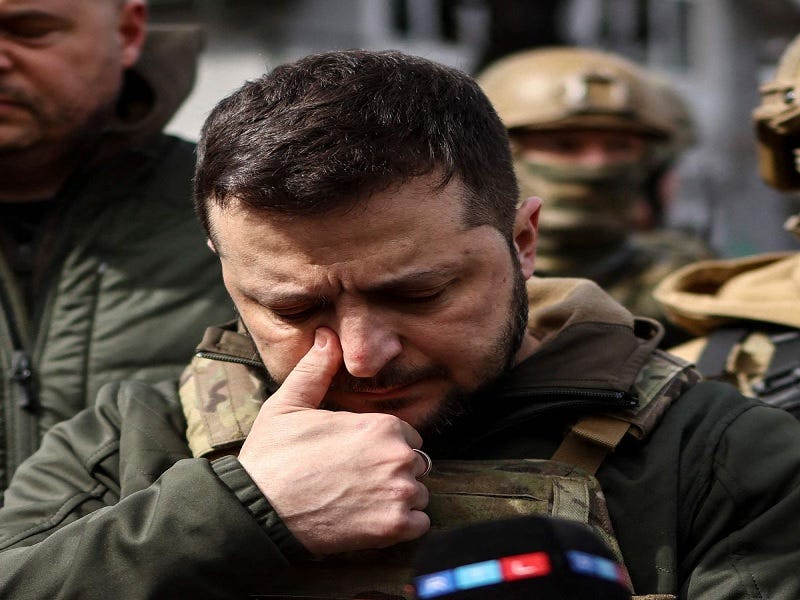Kiev’s Daily Casualty Rate & Ridiculous Arms Demands Confirm That It’s Losing
The present trajectory is that Russia’s victory in the Battle for Donbass appears inevitable, after which Moscow will either continue moving westward toward the Dnieper or consider a ceasefire if the proposed terms enable it to advance the aims of its special operation through diplomatic means.
Two recent news items confirm that Kiev’s losing in its conflict with Russia, hence why the US-led Western Mainstream Media (MSM) decisively shifted its narrative in recent weeks and the reason behind the speculation that the EU’s “Big Three” might discuss a possible ceasefire plan with Zelensky during their visit to his country’s capital. These are his senior advisor Arakhamia’s staggering statistic that Kiev’s experiencing upwards of 1,000 casualties a day in the Battle for Donbass and his other advisor Podolyak’s ridiculous demand for what The Guardian estimates amounts to half of the US’ missile launchers and practically all of its howitzers.
There’s no way that Kiev can sustain its present loss rate indefinitely, nor any realistic chance that the US will empty its stockpiles by capitulating to its proxy’s demand. By contrast, despite false claims over the past quarter-year that Russia had run out of ammo and that a whopping one-third of its armed forces were destroyed in Ukraine, its ongoing special military operation there continues to slowly but steadily make tangible on-the-ground progress. The takeaway is that nothing but lies were spewed about the campaign thus far until the truth became impossible to deny a few weeks ago.
There’s a palpable panic coming from Western media and officials over the course of the Ukrainian Conflict that’s also reflected in European public opinion. According to a report that was just published by the European Council on Foreign Relations, more Europeans want peace over punishing Russia. That ratio is expected to continue growing as perception managers continue recalibrating the “official narrative” closer to the truth, which could coincide with more public discussions about a ceasefire along the lines of what the influential outlet Politico impressively attempted to spark this week.
The MSM’s targeted Western audience might be so caught up in following daily events that many might not have realized how decisively their “trusted news sources’” coverage of this conflict has shifted in recent weeks. They’d do well to ask themselves why they weren’t informed of the truth earlier, though few will likely ever do that due to the doublethink that they’ve been programmed over the years to experience when confronted with “politically inconvenient” facts. Nevertheless, it’s still important to point out how radically the “official narrative” has begun to change.
It's indeed possible that this could be exploited by the military-industrial complex to push for even more military aid to Kiev, though it’s also possible that the Western public is finally becoming exhausted with everything and has thus now comparatively number to the conflict than before. If the second-mentioned possibility is credible even only in part, then it suggests that Kiev might have already received the vast majority of the foreign support that its sponsors are willing to give. With its shockingly high casualty rate and ridiculous arms demands, few might be willing to pour even more money into it.
The present trajectory is that Russia’s victory in the Battle for Donbass appears inevitable, after which Moscow will either continue moving westward toward the Dnieper or consider a ceasefire if the proposed terms enable it to advance the aims of its special operation through diplomatic means. All that can be known for certain is that the MSM is preconditioning the Western public to expect either of those outcomes after previously brainwashing them with “victory porn” connected to the false fantasy of Kiev’s “victory” over Russia. Their proxy’s casualty rate is unsustainable and its arms demands unrealistic, which suggest that the West might soon pressure it to accept some sort of compromise.




